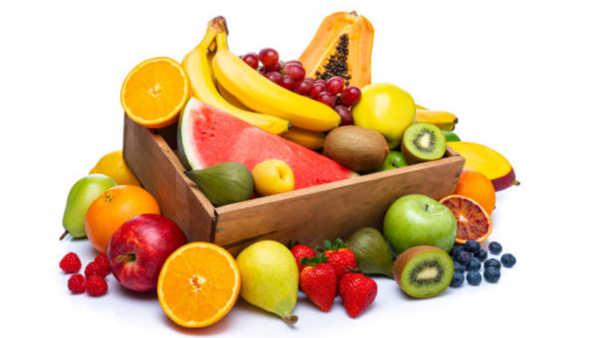Fruits are a vital component of a balanced diet, yet confusion often surrounds their consumption, particularly for those concerned about diabetes. A recent claim by a nutritionist suggesting that eating fruits on an empty stomach could hasten the onset of diabetes has sparked debate.

However, Dr. Santhosh Jacob, a muscle-centric orthopedic and sports surgeon, challenges this notion, asserting that consuming whole fruits is not only safe but can also be beneficial for individuals managing diabetes.
Dr. Jacob explains that fruits primarily consist of water (approximately 80%), alongside fructose, glucose, sucrose, and fiber. He emphasizes that when consumed whole, these components have a minimal impact on blood sugar levels.
According to Dr. Jacob, consuming whole fruits typically leads to a modest increase in blood sugar, around 30 milligrams per deciliter over two hours, which subsequently returns to normal. This controlled response makes whole fruits a safe option for people with diabetes, even when eaten on an empty stomach. Furthermore, the fiber, polyphenols, and short-chain fatty acids present in fruits promote gut health by nourishing beneficial bacteria.

The misconception that eating fruit on an empty stomach is detrimental arises from concerns about rapid gastric emptying and sugar absorption. Dr. Jacob clarifies that while fruits digest relatively quickly, their fiber content prevents rapid blood sugar spikes. He also dispels worries about fruits disrupting gut bacteria, stating that only high alcohol consumption, antibiotic overuse, or chemotherapy drugs can significantly harm gut flora.

Dr. Jacob highlights the crucial role of lifestyle factors in the development of diabetes:
He concludes that whole fruits, packed with nutrients and fiber, can be a valuable asset in managing or preventing diabetes.
Newer articles
Older articles
 Emma Raducanu Shuts Down Carlos Alcaraz Dating Rumors with Playful Wimbledon Press Conference Quip
Emma Raducanu Shuts Down Carlos Alcaraz Dating Rumors with Playful Wimbledon Press Conference Quip
 Rishabh Pant's "Revolutionary" Cricket Style Hailed by Greg Chappell
Rishabh Pant's "Revolutionary" Cricket Style Hailed by Greg Chappell
 5 Silent Signals of Prediabetes: Recognize the Warning Signs Before a Blood Test
5 Silent Signals of Prediabetes: Recognize the Warning Signs Before a Blood Test
 Wimbledon 2025: Broadcast Guide for India and US Viewers - Dates, Prize Money, and Streaming Details
Wimbledon 2025: Broadcast Guide for India and US Viewers - Dates, Prize Money, and Streaming Details
 Smith Targets Second Test Return After Innovative New York Rehab
Smith Targets Second Test Return After Innovative New York Rehab
 Gavaskar Calls for Kuldeep Yadav's Inclusion in Second Test Amid Bumrah Fitness Doubts, Cites Birmingham Pitch Advantage
Gavaskar Calls for Kuldeep Yadav's Inclusion in Second Test Amid Bumrah Fitness Doubts, Cites Birmingham Pitch Advantage
 Skin Signals: 7 Unexpected Signs of Heart Disease You Should Know
Skin Signals: 7 Unexpected Signs of Heart Disease You Should Know
 India Poised for Dengue Breakthrough as Vaccine Candidate Nears Trial Completion
India Poised for Dengue Breakthrough as Vaccine Candidate Nears Trial Completion
 Science-Backed Steps to a Healthier Heart: 5 Simple Habits for a Stronger You
Science-Backed Steps to a Healthier Heart: 5 Simple Habits for a Stronger You
 FIFA Club World Cup 2025: Upsets, Messi Magic, and 2026 World Cup Concerns Emerge From Group Stage
FIFA Club World Cup 2025: Upsets, Messi Magic, and 2026 World Cup Concerns Emerge From Group Stage